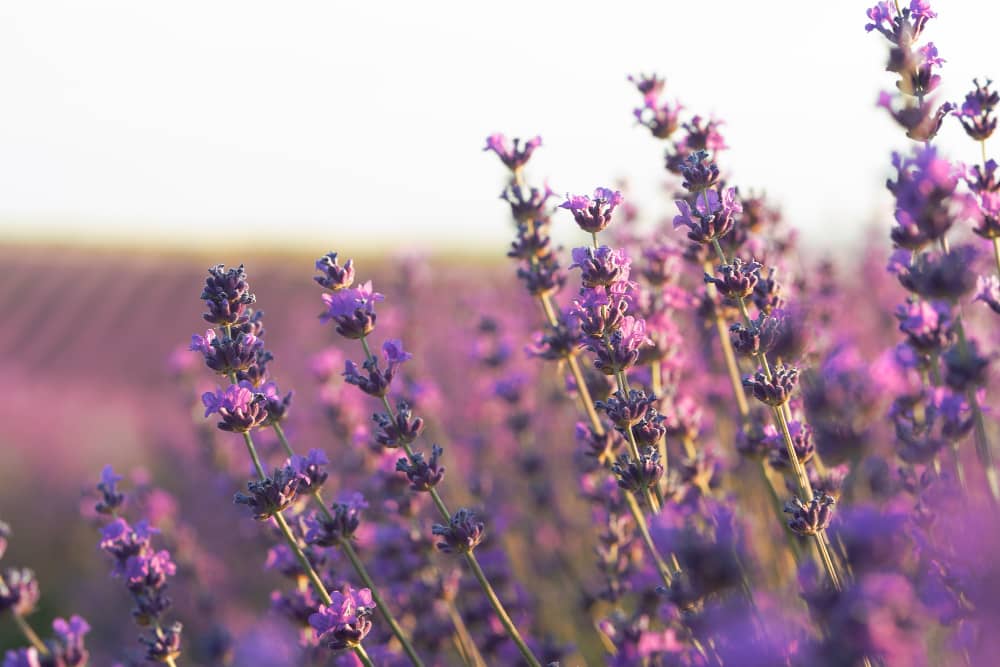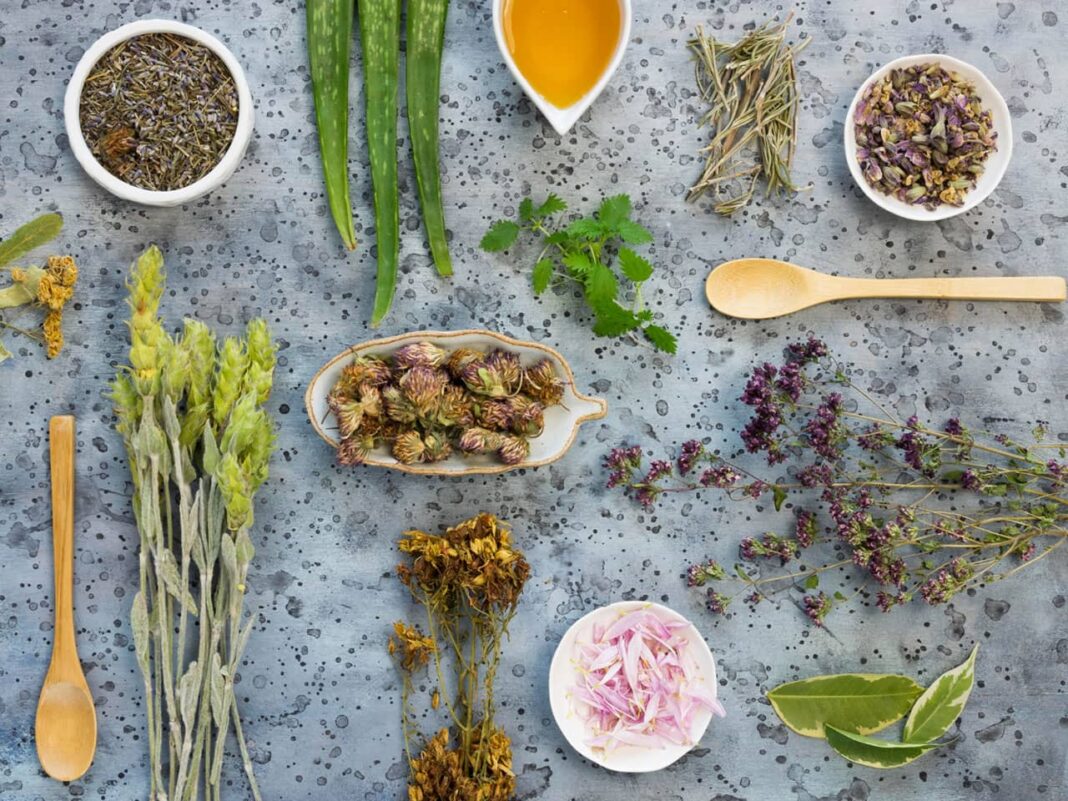Bulgaria, known for its rich agricultural heritage, has emerged as the largest producer of herbs and spices in the European Union. According to Eurostat’s data from 2017, this Southeast European nation harvested an impressive total of 81,000 tons of aromatic plants and spices. This achievement underscores Bulgaria’s commitment to cultivating high-quality herbs while capitalizing on its favorable climate and fertile soils.
The country’s prominence in herb production can be attributed to several factors. Firstly, Bulgaria boasts a diverse range of terrains and microclimates that are conducive to growing a wide variety of aromatic plants. From the sunny valleys in the south to the cooler mountain regions in the north, there is ample opportunity for different species to thrive. Additionally, generations of Bulgarian farmers have honed their skills and knowledge over time, perfecting cultivation techniques that maximize both quantity and quality.
Bulgaria is a small country located in the southeastern corner of Europe, with a population of over 7 million people. It is known for its beautiful mountain ranges, historic cities, and vibrant culture. But there is one aspect of Bulgaria that often goes unnoticed: its impressive herbal production.
Bulgaria is the Largest Producer of Herbs in the EU
Bulgaria is the largest producer of herbs in the European Union, with over 60 varieties of medicinal and culinary herbs grown in the country. These herbs are harvested and dried according to traditional methods, ensuring that the maximum flavor and medicinal properties are maintained. Herbs have been cultivated in Bulgaria for centuries, and today they are in high demand around the world.
Herbs have a range of health benefits, from aiding in digestion to providing anti-inflammatory and antioxidant properties. They also add flavor to dishes and have a distinct fragrance and taste. This is why they are so important and used in various ways, from cooking to medicinal remedies.
In this article, we will explore Bulgaria’s history of herb production, the process of harvesting and drying herbs, and the many benefits of consuming herbs from Bulgaria. We will also take a look at how Bulgarian herbs are exported around the world and their importance in the global marketplace. By the end of this article, you will understand why Bulgaria is the largest producer of herbs in the European Union.

Bulgaria’s Herbal History
Herbalism has been a part of Bulgarian culture since ancient times. Plants and herbs were used for medicinal purposes, and certain plants were even believed to have spiritual powers and significance. Herbalism was traditionally practiced by the Thracians, an ancient tribe from the Balkan region, and later by the Bulgarians who followed them. Bulgarians were exceptionally skilled in preparing and using herbs, and their knowledge was passed on from generation to generation.
The use of herbs and plants for medicinal purposes was also documented in the works of early Bulgarian authors such as Paisi Khelovski and Constantine Preslavski. In their writings, these authors described the use of various plants and herbs as cures for various illnesses and ailments. They also provided detailed instructions for preparing and using these plants and herbs.
Herbalism remained an important part of Bulgarian culture throughout the Middle Ages, and many of the herbs and plants used in traditional medicine can still be found in the country today. In the 19th century, Bulgarian herbalists began to produce herbal medicines on a large-scale basis, and the industry continued to grow throughout the 20th century. By the end of the 20th century, Bulgaria had become one of Europe’s leading suppliers of herbal medicines.
Bulgaria’s reputation as a leader in the production of herbal medicines was further strengthened by the country’s membership in the European Union (EU). This has given Bulgarian herbalists access to European markets and has allowed them to export their products to a much larger customer base. Today, Bulgaria is the largest producer of herbs in the EU, and its products are sought after by customers around the world.
The Bulgarian government has also played an important role in the growth of the herbal industry. The government has provided financial support to local producers and has encouraged the development of new technologies to improve the quality of the products. The Bulgarian government also invests in research and development to ensure that the quality and safety of its herbal products are of the highest standard.
In recent years, Bulgaria has become a popular destination for tourists who are interested in herbalism and traditional medicine. Tourists can visit local herb producers and learn about the herbs and plants used in traditional Bulgarian medicine. They can also purchase herb-based products directly from the producers or from local markets. Bulgaria’s herbal products are not only of high quality but also affordable, making them attractive to consumers in many countries around the world.
Herbal Production in Bulgaria
Harvesting and drying herbs in Bulgaria is a centuries-old tradition passed down through generations. Bulgaria is known for its fertile soil and ideal climate, which allows for the perfect conditions to grow various herbs. Today, Bulgaria produces various herbs, including oregano, thyme, basil, marjoram, rosemary, and mint.
Harvesting begins in the summer when the herbs flower and the leaves become fragrant. During the peak harvesting season, the farmers pick the herbs by hand and carefully bundle them into sheaves. The sheaves are then laid in the sun to dry, which takes several days. Once the herbs are dried, the leaves are separated from the stems and the herbs are ready for sale.
Bulgaria produces over 20 different varieties of herbs, some exclusively grown in the country. Bulgarian oregano is very popular, known for its strong, pungent flavor. Thyme and basil are also harvested in large quantities, as they are frequently used in various dishes. Marjoram, rosemary, and mint are also grown in Bulgaria, and each herb offers its own unique flavor and aroma.
In addition to traditional herbs, Bulgaria is also home to rare and exotic herbs that can be difficult to find elsewhere. Wild chamomile, lemon balm, and angelica are just a few of the herbs indigenous to Bulgaria. These herbs are highly sought after due to their unique flavor profiles and therapeutic properties.
Herbs from Bulgaria are widely used in a variety of culinary and medicinal applications. The herbs are often used to add flavor and aroma to dishes, as well as to treat a variety of ailments. The herbs are also used in aromatherapy and traditional medicine practices, as they are known to have numerous health benefits.
Bulgarian herbs are harvested with the utmost care and attention to detail, ensuring that they retain their freshness and flavor. The farmers take pride in their work, as they know that their herbs are highly sought after by customers around the world. Bulgarian herbs are considered to be some of the finest in the world, and the country has become a major player in the global herbal market.

Benefits of Herbs from Bulgaria
Herbs from Bulgaria offer a wealth of benefits to their consumers. They are known for their medicinal properties, and have been used to treat a variety of ailments since ancient times. Herbs in Bulgaria are often hand-cultivated, ensuring that they are of the highest quality and contain only the finest ingredients. They are also grown without chemical fertilizers, pesticides, or other artificial additives, producing a pure and natural product.
Bulgarian herbs are rich in antioxidants and other essential nutrients, making them ideal for boosting the immune system and increasing overall health and well-being. Herbs from Bulgaria are also known for their anti-inflammatory properties, which can help to reduce inflammation associated with various chronic illnesses. Furthermore, the herbs’ therapeutic properties can help reduce stress and anxiety, promoting relaxation and overall mental well-being and the higher demand makes Bulgaria the largest producer of herbs in the EU.
Herbs from Bulgaria are also known for their digestive benefits. Fennel, dill, and chamomile are some of the most commonly consumed herbs in Bulgaria, and they are known to help aid digestion and reduce bloating and discomfort. The presence of vitamins and minerals in these herbs can also improve the functioning of the digestive system, helping to reduce inflammation and improve nutrient absorption.
Herbs from Bulgaria are also known for their ability to help boost energy levels. Many herbs, including rosemary, peppermint, and basil, can help to stimulate circulation, improving blood flow and providing the body with much-needed energy. Furthermore, some herbs, such as sage and oregano, are known to help reduce fatigue, providing an additional boost of energy throughout the day.
In addition to the medicinal benefits of herbs from Bulgaria, they are also an important part of the country’s culinary heritage. Herbs are commonly used to add flavor to a variety of dishes, from soups to stews and salads. Herbs can also be used to make herbal teas known for their soothing and calming properties.
Bulgarian herbs offer a wealth of benefits to those who consume them, both medicinal and culinary. Bulgarian herbs are a great addition to any diet or lifestyle, from providing an energy boost to aiding digestion. With their high level of quality and natural ingredients, Bulgarian herbs offer a unique way to nourish the body and the mind.

Bulgarian Herbs in the Global Marketplace
For centuries, the herbs of Bulgaria have been sought after for their medicinal properties, flavor, and aroma. Now, Bulgaria is one of the leading exporters of herbs in the world, with over 60% of herbs exported to the European Union and other countries.
Herbs from Bulgaria can be found in many international products, including cosmetics, pharmaceuticals, and food items. The country is renowned for its high-quality herbs and is well-known among herbalists and natural health practitioners.
Bulgarian herbs are harvested by hand and are dried using traditional methods. After harvesting, the herbs are sorted and packed in airtight containers to ensure their freshness. The herbs are also tested for quality and bitterness before they are exported to other countries.
The fertile soils and favorable climate found in Bulgaria provide ideal conditions for growing a wide variety of herbs. With over 700 different species grown across the country, including popular choices like rosemary, lavender, and chamomile, Bulgarian herb producers have established themselves as leaders in this industry. The abundance and diversity of herb production have positioned Bulgaria as a key player not only within the EU but also on an international scale.
The export of Bulgarian herbs has increased significantly in recent years. This is due to the rise in demand for natural products and the recognition of the benefits of using herbs for medicinal purposes. Herbalists worldwide are now seeking out Bulgarian herbs for their healing properties.
While the number of non-European countries to which Bulgaria exports herbs is relatively small, one stands out as the most important: The United States. With an average volume that surpasses any other non-European destination, the USA has become a crucial partner for Bulgarian herb exporters.
The demand for Bulgarian herbs has resulted in a booming trade for the country. The country now exports herbs to over 25 countries, including the United States, Canada, and Australia. The export of herbs from Bulgaria is expected to continue its growth.
Bulgarian herbs are also gaining recognition in the global marketplace. Many herbal products are now being manufactured in Bulgaria, and the country is quickly becoming known as a major player in the herb industry. Bulgarian herbs are also being used more in the food and beverage industry, with many chefs and restaurants now using herbs from Bulgaria to create unique flavors and aromas in their dishes.
The export of Bulgarian herbs is helping to provide jobs and economic opportunities to Bulgarian farmers and herbalists, and it is allowing them to share their knowledge and expertise with the world. The export of Bulgarian herbs is also helping to promote the country’s unique culture and traditions.
Bulgarian herbs are now becoming an important part of the global marketplace, and they are gaining recognition for their unique flavor, aroma, and medicinal properties. Bulgaria is quickly becoming one of the leading producers of herbs in the world, and it is helping to create a new market for herbal products.
Conclusion
Bulgaria has a long and proud tradition of herb production due to its favorable climate and soil, as well as its dedication to the harvesting and drying of herbs. Bulgaria continues to be one of the largest producers in the world and of the largest producer of herbs in the EU. Herbs from Bulgaria are known for their many medicinal properties and are exported around the world. Bulgaria’s herbs have become an important part of the global marketplace, providing many benefits to consumers across the globe.
Overall, Bulgaria is the largest producer of herbs in the EU, and its herbs are prized for their quality and desirable medicinal properties. This is why Bulgaria is an important player in the global herbal industry.
Post Disclaimer
The information contained in this post is for general information purposes only. The information is provided as is and while we endeavour to keep the information up to date and correct, we make no representations or warranties of any kind, express or implied, about the completeness, accuracy, reliability, suitability or availability with respect to the website or the information, products, services, or related graphics contained on the post for any purpose.
These statements have not been evaluated by the FDA and are not intended to diagnose, treat, cure or prevent any disease or health condition. If you have specific healthcare concerns or questions about the products displayed, please contact your licensed healthcare professional for advice or answers.


